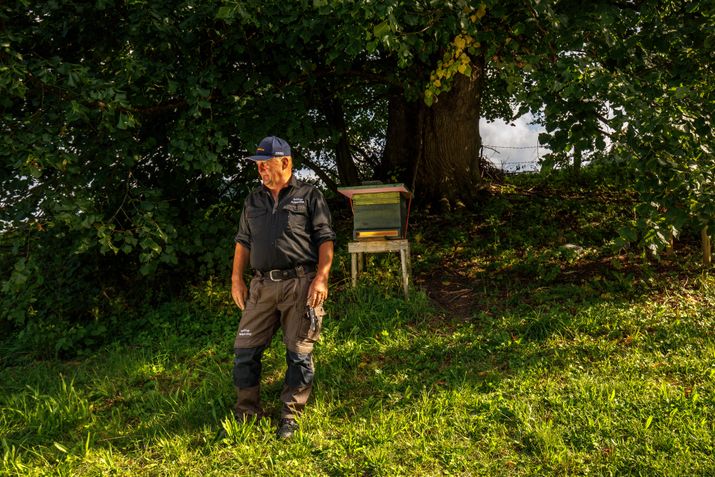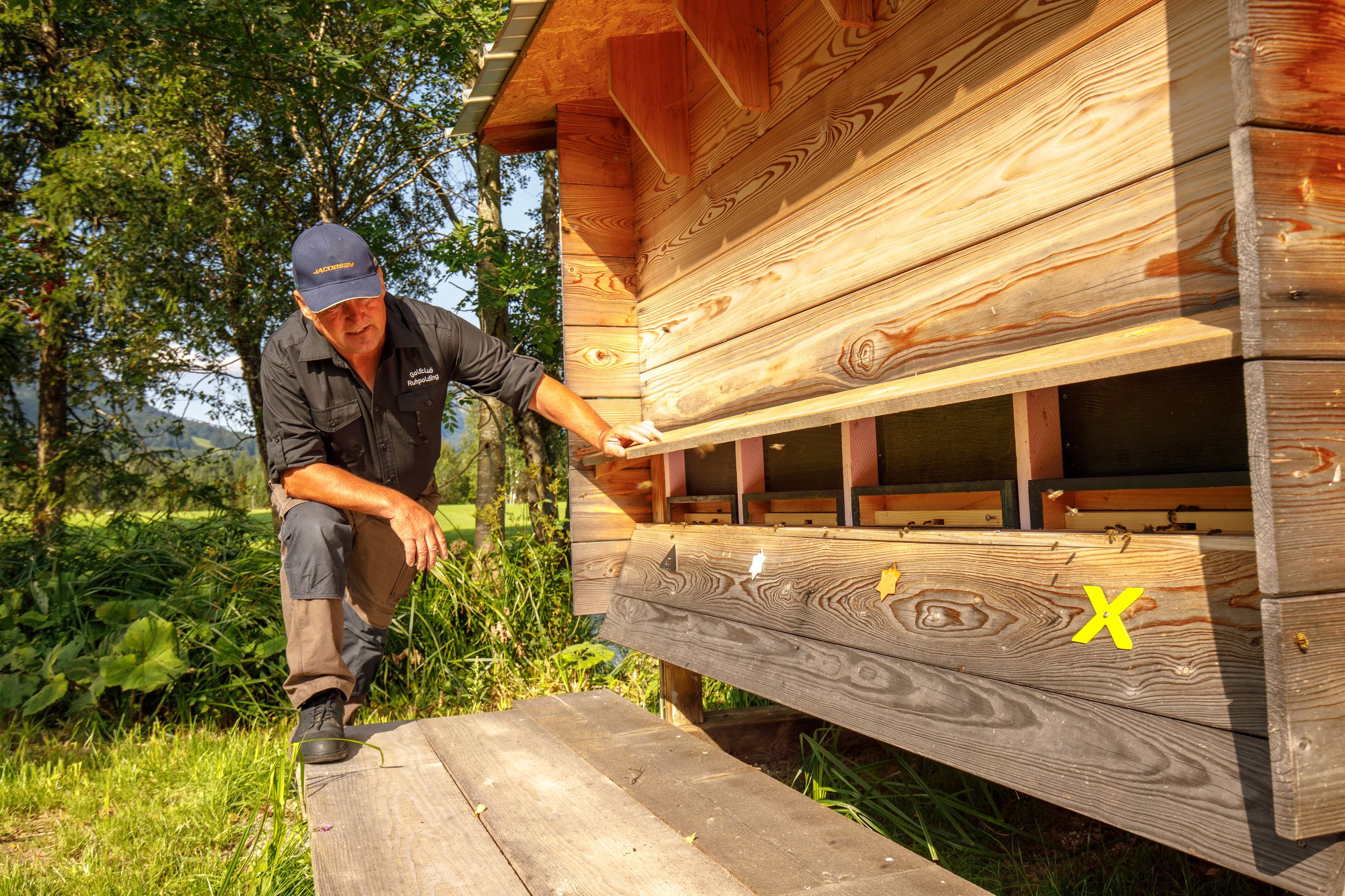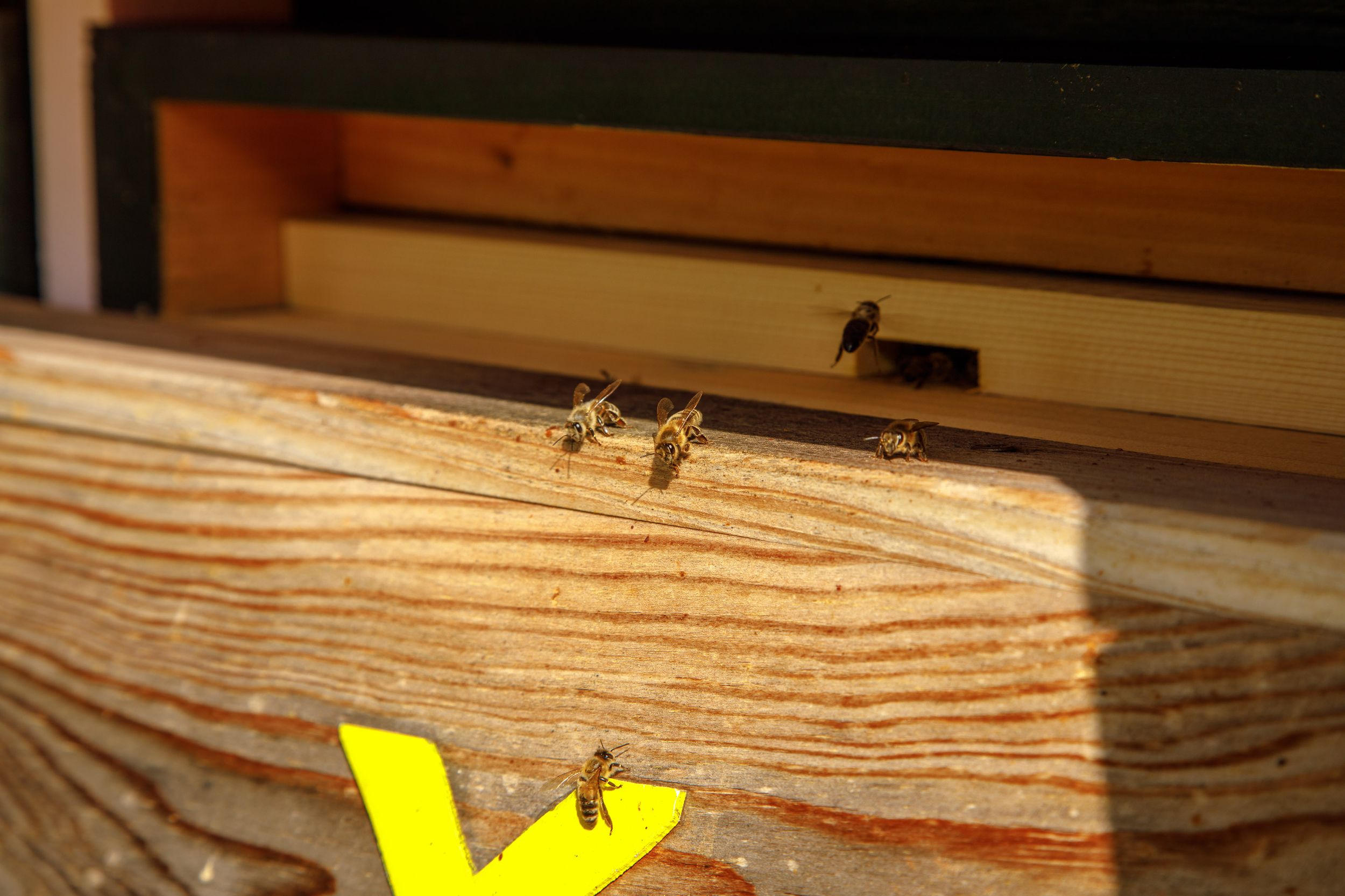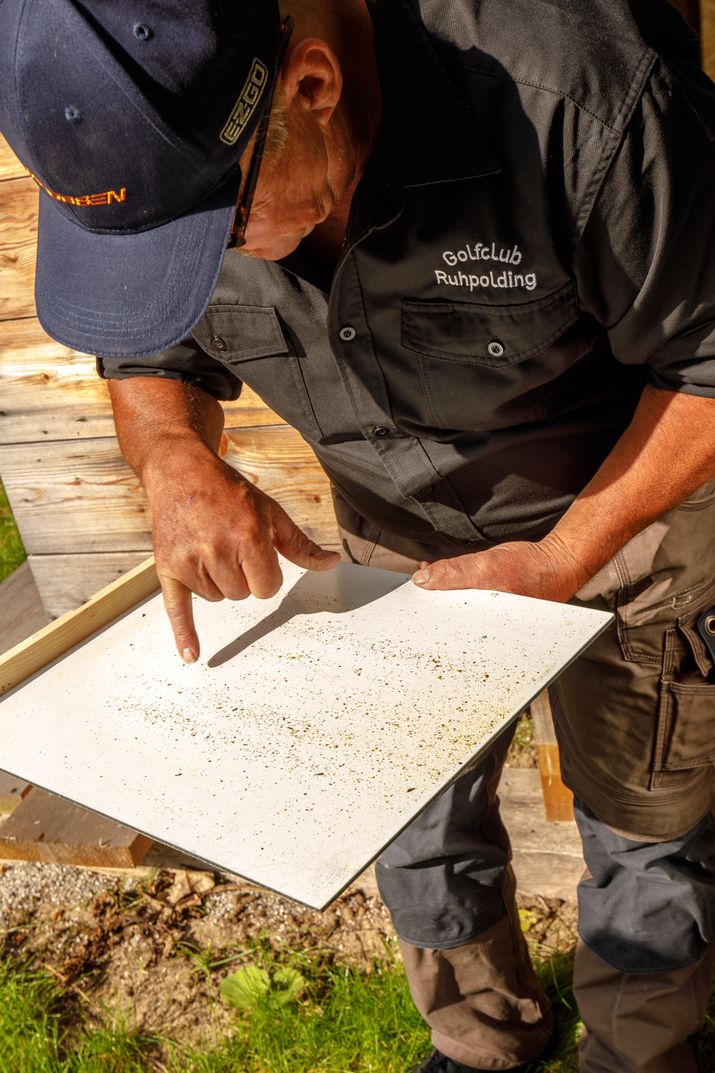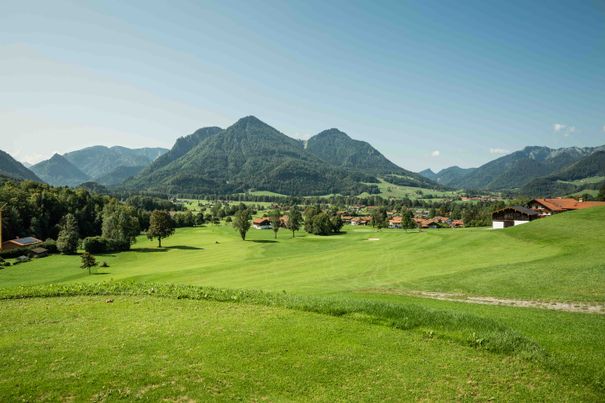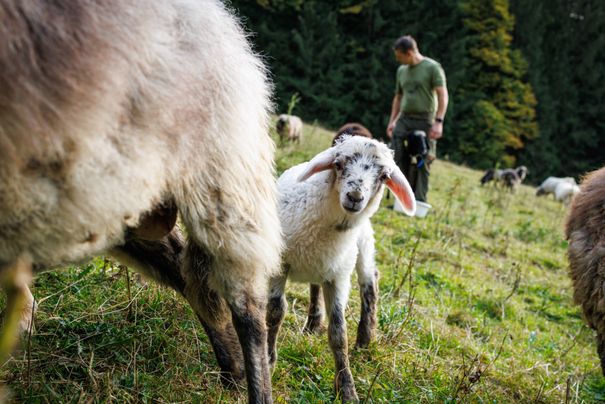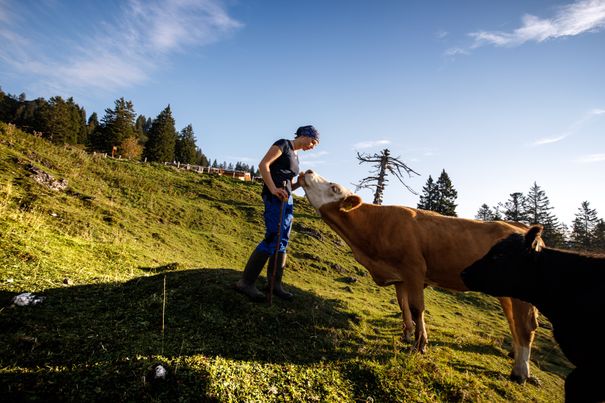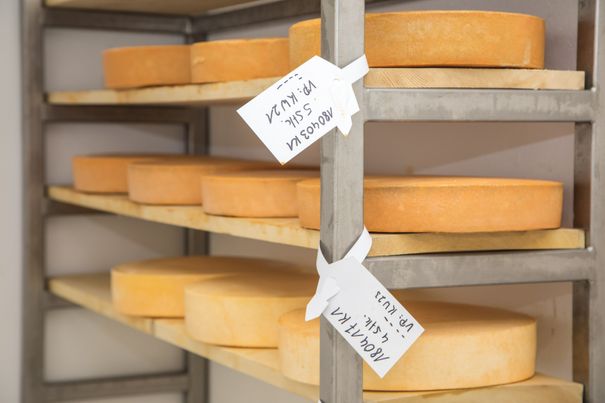Important information at a glance
18 golf holes in the most magnificent valley location. Mountain peaks are grouped all around. Small forests, colourful meadows, farms and fruit orchards grace this scene. The first players are already out. Richard Jany skilfully manoeuvres his caddy past them and cheerfully greets them. He knows every corner, bend and tree here. Past the teeing area on the right, along a narrow gravel path and over a bridge with an idyllically situated pond on the left. Then heading slightly uphill, finally reaching his destination. A green striped beehive stands well protected under a huge lime tree. Richard Jany has not just been the head greenkeeper at Ruhpolding golf course for 25 years, he’s the beekeeper too. He cares for his bees with the same dedication that he tends to the greens. “Only the best for my women,” he winks, parking the caddy just to the side.
He quietly approaches the beehive with calm movements. Fear of contact? Not at all. Richard Jany is well acquainted with his bees. He never wears a protective suit and hat with veil. “They’re really peaceful creatures and only irritated when there’s a thunder storm. And if you’re jittery,” he says. Things are pretty quiet at the entrance hole this morning. Just a few insects swarm out. “Because the hive is south facing and is in the shade now. It’s too cool for the bees. They only fly when it’s about 15 degrees or more and prefer to lie in,” explains Richard Jany.
